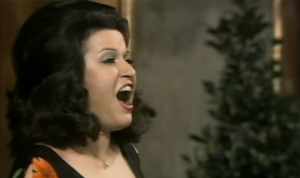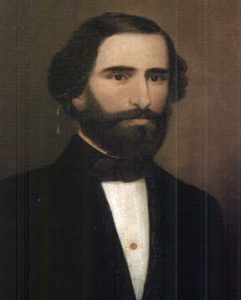Podcast: Play in new window | Download (Duration: 1:26:31 — 100.1MB) | Embed
Subscribe: Spotify | TuneIn | RSS | More
Today’s episode is a celebration of the Texas-born, German-assimilated soprano Helen Donath. Very few singers can boast of a career lasting more than 50 years which yielded such consistently superb vocalism and artistry. Donath began as a soubrette with lyric-coloratura capabilities which blossomed into a jugendlich dramatisch voice capable of successfully assuming roles in Wagner, Strauss, and Weber. Today’s episode has two “gimmicks,” the first of which is that all of the selections are sung in German, even if they were originally set in French or Italian. The second gimmick is that strewn in amongst the other selections, there is a smattering of holiday-related material including works by Bach, Handel, Mozart, Humperdinck, and Pfitzner. Other composers heard include Otto Nicolai, Friedrich von Flotow, Paul Hindemith, as well as numerous examples of Donath’s peerless Mozart singing and a generous helping of operettas by Lehár, Millöcker, and Johann Strauss II. Vocal guest stars are legion, and include Julia Varady, Siegfried Jerusalem, Anna Moffo, Peter Schreier, Edda Moser, Theo Adam, Werner Hollweg, and Günther Leib in performances conducted by Leonard Bernstein, Herbert von Karajan, Kurt Eichhorn, Rafael Kubelik, Herbert Blomstedt, Wolfgang Sawallisch, Bernhard Klee, Otmar Suitner, Hans Schmidt-Isserstedt, Gerd Albrecht, and Willi Boskovsky, as well as Klaus Donath, Helen’s husband since 1965.
Countermelody is a podcast devoted to the glory and the power of the human voice raised in song. Singer and vocal aficionado Daniel Gundlach explores great singers of the past and present focusing in particular on those who are less well-remembered today than they should be. Daniel’s lifetime in music as a professional countertenor, pianist, vocal coach, voice teacher, and journalist yields an exciting array of anecdotes, impressions, and “inside stories.” At Countermelody’s core is the celebration of great singers of all stripes, their instruments, and the connection they make to the words they sing. By clicking on the following link (https://linktr.ee/CountermelodyPodcast) you can find the dedicated Countermelody website which contains additional content including artist photos and episode setlists. The link will also take you to Countermelody’s Patreon page, where you can pledge your monthly support at whatever level you can afford. Bonus episodes available exclusively to Patreon supporters are currently available and further bonus content including interviews and livestreams is planned for the upcoming season.


